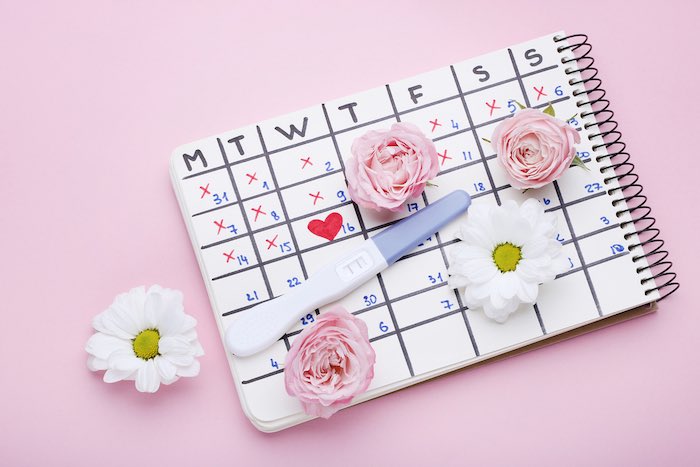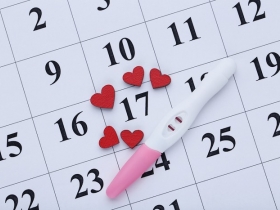Why you should start tracking your ovulation and how to start.
The menstrual cycle can seem complicated and confusing if you haven’t learned much about the different phases and when ovulation happens. Your cycle may be very different from some of your friends and this is perfectly normal. Take ownership over your cycle and start learning about it.
Why should you track ovulation?
There are many reasons to track when you ovulate and your menstrual cycle in general. Women who are trying to get pregnant should track ovulation to try to conceive when they are most fertile. It is still important to track ovulation for women who aren’t trying to get pregnant. Choosing to not have intercourse when you are ovulating will lessen your chances of conception.
Being educated about your menstrual cycle is important. Your menstrual cycle is an amazing bodily function and no woman’s cycle is exactly the same. Learning more about when you ovulate and your entire cycle will help if you are trying to conceive or if you just want to be more informed about your body.
When do women ovulate?
Ovulation is when an egg is released from one of your ovaries. If fertilized by sperm this egg could become a fetus. Women typically ovulate ten to sixteen days before starting their period. Some signs to look for that you may be ovulating are wetter and clearer vaginal mucus; there is typically also a small rise in body temperature during ovulation.
Not all women have a regular cycle and it is important to keep track of your cycle whether or not you are trying to get pregnant. An irregular cycle can be a sign of some hormone disorder or infertility. It is important to talk to a doctor about your cycle whether you think it is regular or not. [1]

How do you track your ovulation?
There are many apps for tracking your cycle that can be very accurate and help you learn about your cycle.
Some of the most highly rated apps for tracking your cycle are:
- Clue: This app allows you to track your cycle, your daily symptoms, and ovulation. It is a fairly accurate predictor of ovulation and when you will get your period. It is important to be diligent with entering your symptoms every day.
- Fertility Friend: This app is more geared towards tracking fertility. This app will alert you on days that you’re the most fertile.
- Natural Cycles - Birth Control: This app measures your ovulation by analyzing your body temperature when you’re at rest. This is called basal body temperature, which rises when you are about to ovulate. [2]
You can also purchase at home testing kits to track when you are ovulating. There are a few types of at home ovulation testing kits. Cassettes are tests that use a urine sample. Strips or sticks are another type of ovulation tests that require urine samples. Saliva tests are also an option, these tests require a saliva sample. There are also hormone tests in which you can take a blood sample at home and send it to a company for testing.
Some at home ovulation test kits that are highly rated are:
- Clearblue Fertility Monitor: this test will give you a daily fertility status and store your fertility data. This test will also track estrogen and LH levels.
- Natalist Ovulation Test Kit: this test is 99% effective in checking ovulation status. This is a test strip that needs a urine sample. This test checks LH levels.
- Ava Fertility: This is a wearable fertility test. This is an armband that is connected to an app. This tracker should be able to track your 5 day fertility window sooner than other at home tests. [3]
Sources:
[1] https://www.nhs.uk/common-health-questions/womens-health/how-can-i-tell-when-i-am-ovulating/
[2] https://www.healthline.com/health/pregnancy/fertility-apps#our-picks
[3] https://www.medicalnewstoday.com/articles/at-home-ovulation-test#at-home-tests






